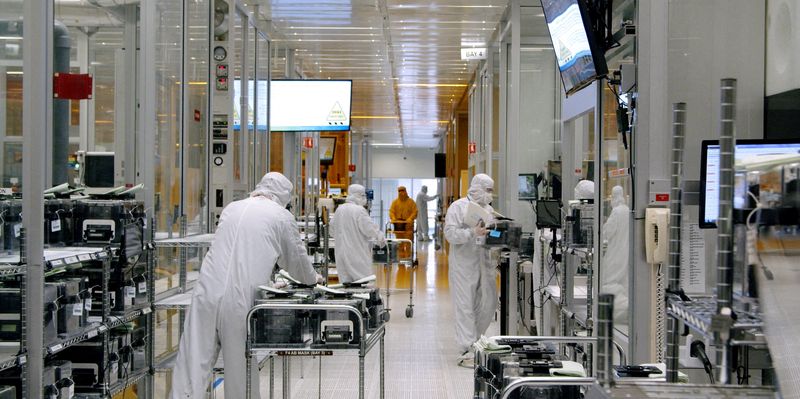WASHINGTON (Reuters) - Production at U.S. factories increased more than expected in July as output rose at motor vehicle plants and elsewhere, pointing to underlying strength in manufacturing despite ebbing business confidence.
Manufacturing output rebounded 0.7% last month after declining 0.4% in June, the Federal Reserve said on Tuesday. Economists polled by Reuters had forecast factory production would rise 0.2%. Output increased 3.2% compared to July 2021.
Manufacturing, which accounts for 11.9% of the U.S. economy, remains supported by strong demand for goods even as spending is gradually shifting back to services. But risks are rising, with retailers sitting on excess inventory, especially of apparel.
A strong dollar as a result of tighter monetary policy could make U.S. exports more expensive. The U.S. central bank has hiked its policy rate by 225 basis points since March. The aggressive monetary policy tightening has raised fears of a recession, hurting business sentiment.
Production at auto plants surged 6.6% last month. Excluding motor vehicles, manufacturing rose 0.3%. Output of long-lasting manufactured consumer goods increased 3.5%, while that of nondurable consumer goods fell 0.3%.
Mining production increased 0.7%, continuing to be underpinned by oil and gas extraction. Output at utilities fell 0.8%. The rise in manufacturing and mining output helped to lift overall industrial production by 0.6%. Industrial output was unchanged in June.

Capacity utilization for the manufacturing sector, a measure of how fully firms are using their resources, increased half a percentage point to 79.8% in July. It is 1.6 percentage points above its long-run average. Overall capacity use for the industrial sector rose to 80.3% last month from 79.9% in June. It is 0.7 percentage point above its 1972-2021 average.
Officials at the Fed tend to look at capacity use measures for signals of how much "slack" remains in the economy - how far growth has room to run before it becomes inflationary.